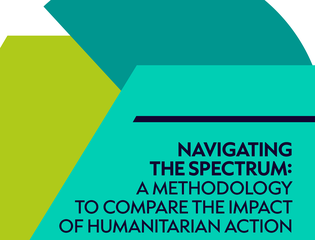Decolonising humanitarian aid has imposed itself on the humanitarian debate over the past few years, both in academic and practitioner circles. Decolonisation, as a term, alludes to the imbalance of power and the potential to rebalance this power asymmetry. But the how, to what extent, and with what means is not yet clear.
The use of decolonisation as a framework for action has thus far sidestepped the important —and more complex—act of understanding the monopoly, misuse, or abuse of power in the mainstream humanitarian sector. This lack of a collective consciousness has opened spaces for defensiveness, denial, and repudiation by those in the humanitarian sphere who see the call to decolonise as a threat to the power hierarchy. Likewise, decolonisation as an act is not seen equally by those who advocate it and ranges from reforming the system to calls for disposing of it all together.
Whether decolonising humanitarianism means giving back agency and leadership to the people it serves, combatting its embedded structural racism, or decentralizing its power and resources to local humanitarian actors, there is a need to talk of existing power imbalances across the Global North and South, if humanitarianism is to live up to its own claims.

